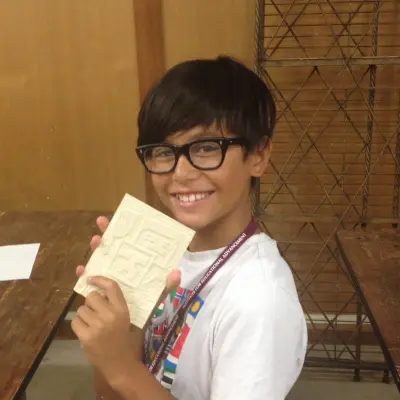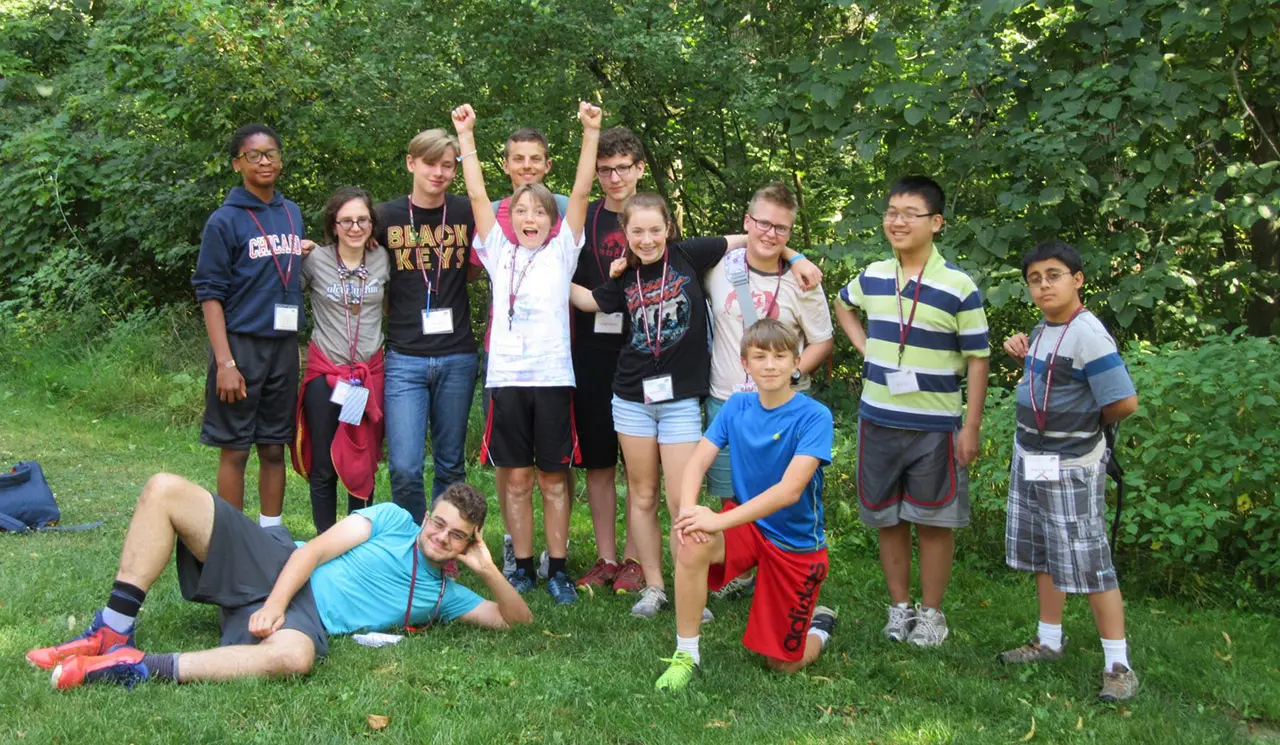More Than Their Minds: IEA’s Whole Child Approach
We know that gifted children are more than high test scores and academic achievement. While intellectual challenges are necessary, gifted children need more than intellectual stimulation to thrive. Along with advanced intellectual capacity, these individuals also have social, emotional, spiritual, and physical selves. Children with unusually advanced intellectual abilities are uniquely vulnerable to challenges of social and emotional development that stem from being gifted and trying to navigate a world that does not readily understand or accept them. Additionally, in today’s struggling educational system, the needs of our gifted and highly gifted students are often neglected. Understanding and acceptance of giftedness – and the unique joys and challenges that accompany it – as an integral part of self is crucial during childhood and adolescence, as these are critical stages of development.
At IEA, our Whole Child approach emphasizes each child’s potential as a whole person, rather than focusing on one specific area of talent or ability. We address their social and emotional needs through programs that teach skills related to problem solving, risk-taking, interpersonal relations, and self-esteem. These are skills that highly gifted young people typically do not have the opportunity to fully actualize in programs that focus solely on academic achievement. IEA balances the need for academic success with other tools, including teaching children what it means to be gifted to ensure they thrive in all aspects of life and grow into their best and most realized selves.
FINDING THE PERFECT RATIO: IEA’S OPTIMAL MATCH PHILOSOPHY
Gifted individuals are not all the same, and a one-size-fits-all approach will not adequately meet their needs. As part of our child-centered approach, IEA follows the Optimal Match Philosophy, matching students’ assessed needs with the optimal educational resources. We know gifted children are more than test scores, and our approach enables us to see into each child’s world. What does this child need? How can we best help?
IEA’s programs are designed to fit each participant’s ability and interest, and we always focus on the uniqueness of each person. IEA greatly values community feedback as a way to continuously improve our programs and services, working in collaboration with the students, their families, and schools.
All of IEA’s academic programs encourage the practical application of knowledge. Students aren’t simply provided with information as fact and expected to accept and absorb it verbatim; they learn through hands-on experiences and by solving real-world problems. They also benefit from intellectual exploration with peers and mentors who guide them through the learning process.
Our gifted programs have some of the best student-to-staff ratios in the nation. We keep our programs small and in-person for many reasons. We are able to provide more individualized attention to each participant, foster poignant connections, and focus on program quality.
For example, IEA Academy classes are designed based on student interest in topics and methods of learning. Differentiation of the topic and the learning process also occurs within the Academy classroom, based on student needs and interests. In the IEA EXPLORE Program, Externs are matched with the most appropriate Mentors based on the students’ interests and experience levels, and Mentors are often sought specifically for Externs seeking experience in a particular field or with a certain type of Mentor. The Caroline D. Bradley Scholarship assists students in identifying and attending the high school that best meets their individual intellectual and personal needs. Yunasa campers have a variety of workshops and activities to choose from in order to ensure that their experience is suited to what they wish to learn and achieve over the course of the week.
IEA has helped gifted young people find the tools they need for over 25 years. Explore our programs for gifted youth.
“Gifted individuals are not all the same, and a one-size-fits-all approach will not adequately meet their needs.”
“OUR GOAL, THE HEART AND MISSION OF IEA, IS TO HELP THE GIFTED CHILD GROW AND LIVE A PURPOSEFUL, MEANINGFUL LIFE IN WHATEVER WAY THEY CHOOSE.”
– Elizabeth D. Jones, IEA President
“I HAVE SEEN SO MANY AMAZING YOUNG PEOPLE WHO HAVE ACHIEVED SO MUCH IN THEIR LIVES WITH THE HELP OF IEA. IEA HELPED GIVE THEM THE CONFIDENCE TO ENJOY LIFE AND GO THROUGH EACH AND EVERY DOOR THAT OPENS FOR THEM.”
– IEA Donor
Donate to IEA today!
Our goal is to never turn a child away due to a lack of resources. You can help us fulfill this goal and continue serving these bright, young minds, many of whom are overlooked and underserved.

MORE THAN A TEST SCORE: PORTFOLIO-BASED ASSESSMENT
IEA does not rely solely on test scores for participation in our programs. Though testing can be a helpful source of information to assess students’ abilities, it does not give a full picture of who the students are, what they care about, and what they are capable of accomplishing. Many factors, including learning disabilities and developmental asynchronies, can profoundly affect a student’s scores.
To identify students who will most benefit from IEA’s programs and services, IEA uses portfolio-based applications. These applications use quantitative and qualitative information to capture each applicant’s unique abilities and allow applicants to demonstrate creative thinking and intellectual promise. This enables IEA to determine applicants’ abstract thinking skills, cognitive complexity, creativity, intensity, and passion for learning, helping us see all aspects of the applicant in order to eliminate bias that may stem from environmental factors, learning disabilities, socioeconomic status, parental involvement, or creative talents.

Find Your Community: The IEA Family
Gifted individuals often have a difficult time finding intellectual peers in their day-to-day lives. Gifted children often feel isolated, like outliers, out-of-step with their classmates. They see differences between themselves and their chronological peers. They may use different vocabulary, have different interests, express a deep passion for learning, or engage in endless questioning that they don’t see in their age-mates.
Especially in the early years of school, this can be confusing because they do not understand why they’re different. It is important, therefore, for them to be with other gifted children and understand that they are not alone.
IEA’s programs and services provide gifted youth with intellectual peers who share their passions, abilities, and interests so they can build lasting relationships, develop networks, and make connections in their fields of interest.
